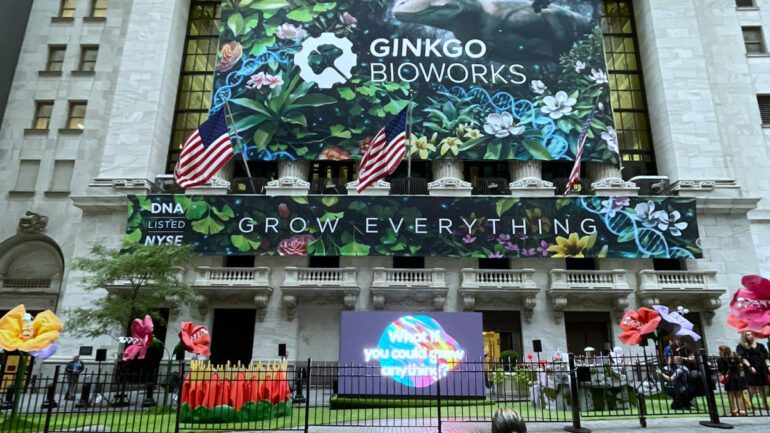TL;DR:
- Ginkgo Bioworks and Google Cloud established a five-year strategic partnership.
- Collaboration focuses on developing AI tools for biology and biosecurity.
- Ginkgo plans to create advanced large language models (LLMs) on Google Cloud’s Vertex AI platform.
- Partnership aims to accelerate innovation in genomics, protein function, and synthetic biology.
- Ginkgo’s platform, combined with Google Cloud’s computing resources, drives breakthroughs in drug discovery, agriculture, and more.
- Ginkgo’s biosecurity unit, Concentric, played a pivotal role in the pandemic response.
- Foundational models for proteins and subsequent applications are to be developed.
- Google Cloud’s cutting-edge infrastructure, including Tensor Processing Units (TPUs), to enhance AI capabilities.
- Collaboration to facilitate generative AI enterprise search and improved data repositories.
- Ginkgo to contribute to public data aggregation, strengthening global pathogen surveillance.
Main AI News:
In a groundbreaking collaboration that heralds the next chapter in the realm of biological innovation, Ginkgo Bioworks (NYSE: DNA), a pioneer in cell programming and biosecurity solutions, has joined forces with tech titan Google Cloud. This strategic alliance, spanning a five-year horizon, is poised to usher in a new era of advancements, fusing cutting-edge AI capabilities with the intricate world of biology.
Underpinning this visionary partnership is Ginkgo’s resolute ambition to craft state-of-the-art large language models (LLMs) on Google Cloud’s Vertex AI platform. The scope is vast, spanning genomics, protein function, and synthetic biology. By synergizing their prowess, Ginkgo and Google Cloud are empowering innovation across diverse fields such as drug discovery, agriculture, industrial manufacturing, and biosecurity. Google Cloud’s endorsement of Ginkgo as its primary cloud services provider signifies a quantum leap in computational resources, positioning both entities at the vanguard of burgeoning cloud computing demands.
Central to this collaboration is the development of an array of interconnected models. Spearheading this movement is Ginkgo’s mission to forge a foundational model for proteins, with far-reaching implications for generative protein design, sequence optimization, and class-specific functional engineering. The implications span a gamut of applications, from therapeutic breakthroughs to gene therapy capsid engineering and beyond.
Jason Kelly, the astute co-founder and CEO of Ginkgo Bioworks, succinctly captured the essence of this alliance: “The most pressing challenges of our generation require biological solutions, and we must figure out how to better leverage our collective capabilities and move faster. With Ginkgo’s automated Foundry to generate large scale biological data, Google Cloud’s computing horsepower, and Google’s AI expertise, I can’t think of a better partner to scale AI solutions in biological engineering.”
This symbiotic endeavor draws its strength from Ginkgo’s holistic approach to biological engineering and biosecurity, epitomized by its horizontal platform. With over 100 active R&D programs, Ginkgo spans industries, collaborating with titans such as Bayer, Biogen, Merck, and more. Furthermore, Ginkgo’s biosecurity arm, Concentric by Ginkgo, played a pivotal role in orchestrating the US response to the pandemic, underscoring its pivotal role in shaping the future of biosecurity infrastructure.
Thomas Kurian, the visionary CEO of Google Cloud, illuminated the overarching vision: “Google Cloud sees significant potential in the synergy between AI and biotechnology and the transformative impact it can have on the world.” This momentous partnership stands as a testament to this belief, propelling Ginkgo and Google Cloud to the vanguard of life sciences innovation.
Conclusion:
The strategic partnership between Ginkgo Bioworks and Google Cloud marks a paradigm shift in the landscape of biological engineering and biosecurity. By integrating AI-powered large language models and cutting-edge cloud infrastructure, this collaboration is set to revolutionize various industries, from healthcare to agriculture. The focus on foundational models and data enhancement underscores the commitment to innovation and underscores the significance of technology in shaping the future of biology and scientific discovery.

